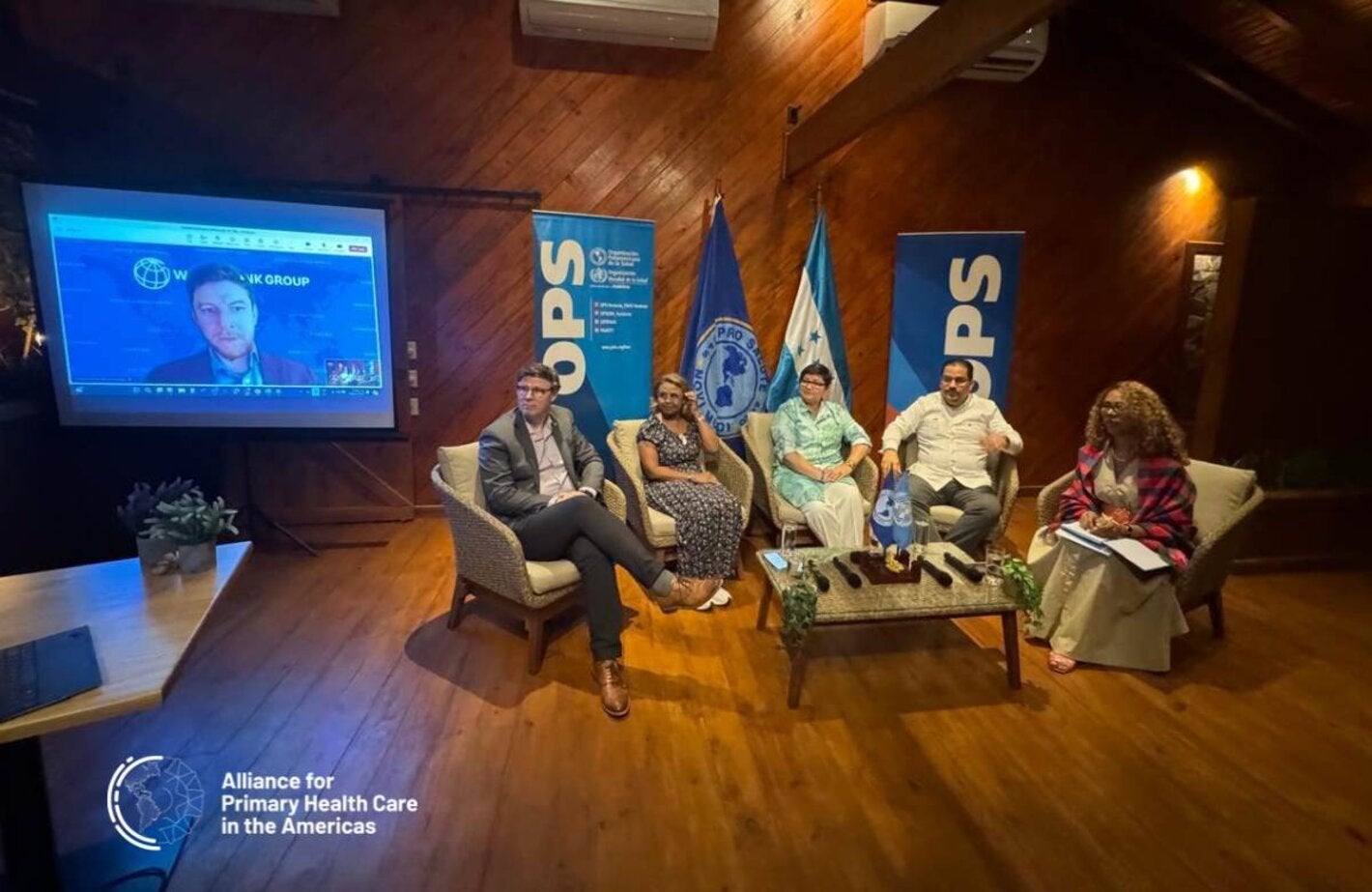
Washington, DC, June 19, 2024 (PAHO) - Health authorities participating at the LX Ordinary Meeting of the Council of Ministers of Health of Central America and the Dominican Republic (COMISCA, in Spanish) met with members of the Alliance for Primary Health Care in Tela, Honduras. The objective of the meeting was to foster national-level dialogues with the health and finance sectors to promote sustainable investment plans that address the health priorities of Central American countries.
Since its launch in December 2023, the Alliance for Primary Health Care established by the Pan American Health Organization (PAHO), the World Bank, and the Inter-American Development Bank (IDB) is working in five countries in the Americas, three of them in Central America, in close collaboration with the health authorities of each country. Part of this collaboration focuses on providing evidence on key issues such as the on the impact of investments in Primary Health Care (PHC).
"PAHO, the World Bank, and the IDB are building a joint vision to support the transformation of health systems based on PHC in the region, which can respond to future health emergencies while meeting the health needs of countries," said James Fitzgerald, Director of Health Systems and Services at PAHO. He emphasized that the key actors in organizing and structuring health in countries are the same ones who need to come together to find solutions, which is an added value of the Alliance.
Cristian Herrera, Senior Specialist at the World Bank, highlighted the convergence that exists in PHC as an important foundation for the dialogue within health ministries, as with other government sectors, such as finance or economy, and with the private sector and civil society. He added that the three organizations agree on the need to increase the efficiency, quality, and equity of public health spending, considering PHC as the best approach to achieve this.
Carla Paredes, Secretary of State in the Health Department of Honduras, highlighted the government’s efforts to recover and strengthen the Secretariat’s stewardship and governance. She emphasized the work of the National Plan for Refoundation of Health, 2024-2030, which includes opening new health centers, rehabilitating existing ones, and strengthening the health system to make it more resilient.
Ivette Berrío Aquí, Vice Minister of Health of Panama, shared the PHC-based strategies implemented in the country to improve the efficiency and effectiveness of the health system. She highlighted the telemedicine experience, which substantially improved access to health services for vulnerable, hard-to-reach populations with major health problems, especially for people with chronic diseases.
Miguel Rodríguez Viñas, Vice Minister of Strengthening and Development of the Health Sector of the Dominican Republic, mentioned the progress in implementing the National Health Strategic Plan, aimed at strengthening the first level of care within the framework of PHC. This plan places people at the center of the process and focuses financing on improving services at the first level of care, information systems, stewardship, and governance. He emphasized that the PHC Alliance will support the implementation of the national plan to strengthen health systems and services in the country.
Ana Emilia Solís Ortega, PAHO/WHO representative in Honduras, who moderated the strategic dialogue of the health authorities, emphasized current initiatives in the country, such as Zero Maternal Deaths, the elimination of communicable diseases, and digital transformation, which will benefit from the Alliance to achieve a greater impact and improve people's health.



